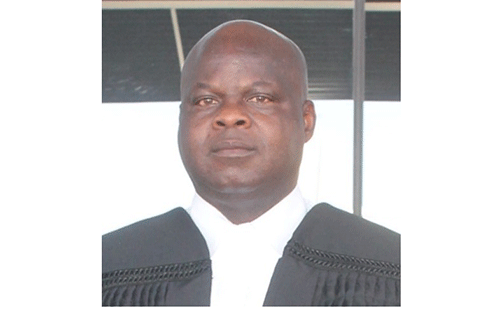It is common cause that the Electoral Act of Namibia was enacted to establish the Electoral Commission of Namibia. The Act also regulates the registration of voters and the nomination of candidates for elections. Additionally, it governs the conduct of elections for various offices.
These include the office of the President of Namibia, members of the National Assembly as well as members of the regional councils and local authority councils.
However, upon closer scrutiny, one would find that the Electoral Act fell short of necessary provisions that could curb and penalise persons or candidates who lure electorates to vote for them.
This is based on misrepresentation, exaggeration and misstating of facts that are not truthful but made with deceit to secure votes without due regard to its truthful or logical reality.
Currently, any person or candidate campaigning to be elected to a public position of authority/can make explicit and implicit election manifesto commitments to the public in a wanton manner – whether achievable or not – without fear of reprisal.
The culprits are mostly politicians who would tell the public to vote for them during election campaigns to land a political public office.
It is disturbing and worrisome to see candidates telling the public what they will do for to them once elected.
One can infer that, upon their election, these promises solidify into an enforceable social contract with the people.
In 2004, during his election manifesto campaign, former president Hifikepunye Pohamba declared a social contract with the Namibian people.
This is akin to what one of the great philosophers of Greek, Thomas Hobbes, believes in social contractarians in that the state is the result of a contract between the citizens.
Recently, the media reported that President Netumbo Nandi-Ndaitwah had promised to wipe out half of Namibia’s shacks, provide free education, reduce Namibia’s imports by 80% , deliver 50 000 houses and revive the liquidated Air Namibia by 2029.
She also promised N$6 billion for youth employment projects to create about 250 000 jobs.
These promises seem to be promises of jobs that never come.
There had been other initiatives that the government expected to create hundreds of jobs.
Consequently, young people are dismayed because they have heard of such promises before – only to see them come to nought.
I am not a pessimist, but I can safely bet it will not happen. It is not that the President at the time was deliberately embellishing.
She obviously means well and certainly wants to see young people working, but she underestimates the monumental difficulty of trying to create jobs in an economy dominated by foreign nationals like the Chinese, Indians and many other expatriates.
Such promises are dangerous, because they are not quantifiable. No proper business study was done to ensure its viability and whether our economy is well suited to grow the economy without hurdles.
This propensity by politicians can be termed as acts of fraud because gullible persons who are desperate and live in abject poverty would change their minds to elect such persons or candidates to public office based on what has been promised to them, albeit false.
Such persons or candidates are guilty of breaching the social contract between them and the public, as they sell the public wild dreams, which will not be realised.
In the end, many electorates are prejudiced, as they have to endure stress and depression because the promised opportunities never come.
If the Electoral Act had penalty provisions penalise such conduct, aggrieved persons would be able to approach the court seeking some orders to declare such election manifestos made by politicians during election campaigns.
These are coupled with the oath by such elected persons or candidates to yield a binding and enforceable social contract between politicians and the people.
It is, therefore, recommended that the Electoral Act should be amended to include provisions that can have dire consequences for would-be offenders, mostly politicians who deceive the public by telling them lies to be voted into public offices.
By so doing, the Electoral Act would be said to be comprehensive enough to have provisions empowering the Electoral Commission of Namibia to have guidelines that ensure that political candidates do not make unconstitutional and exaggerated election manifestos.
*Lucas Tshuuya is a legal practitioner from Onaanda in the Uukwambi district. Follow him at tshuuya@iway.na



